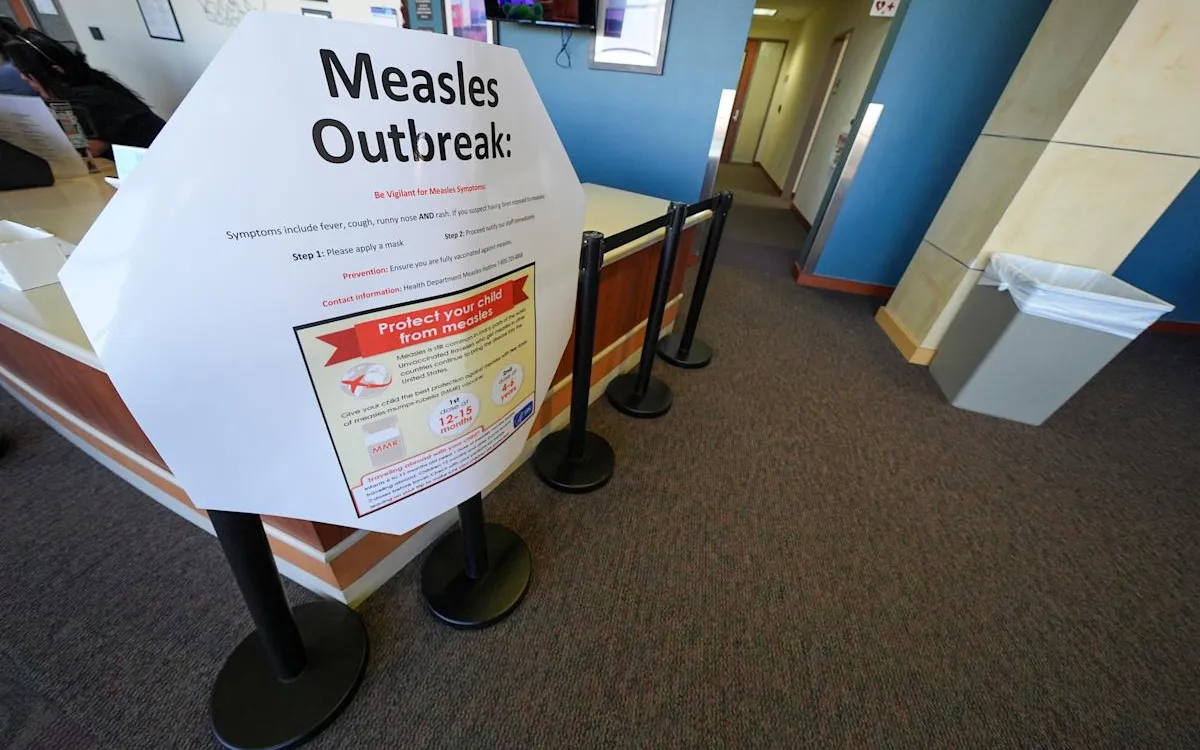
Minnesota is currently experiencing a concerning rise in measles cases, with Dakota County reporting three new infections. This surge has brought the state's total to 20 confirmed cases. Health officials in Minnesota attribute these latest infections to unvaccinated children who likely contracted the virus from an unvaccinated adult. The situation highlights the critical importance of vaccination in controlling the spread of this highly contagious disease.
According to the Centers for Disease Control and Prevention (CDC), the nation has seen an average of 27 new measles cases reported each week since late August. So far this year, there have been more than 1,500 confirmed cases of measles across the United States, marking the highest annual total since the disease was declared eliminated in 2000. These outbreaks are not confined to Minnesota; cases have been documented in 41 states and the District of Columbia.
Tragically, the resurgence of measles has also resulted in the deaths of at least three individuals and has left 193 others hospitalized. The CDC's data reveals that a staggering 92% of those infected were unvaccinated, underscoring the critical need for increased awareness and vaccination efforts.
Health officials continue to advocate for the MMR vaccine (measles, mumps, rubella) as the most effective defense against the measles virus. Studies indicate that the MMR vaccine is approximately 97% effective in preventing illness and stopping the further spread of the disease. Alarmingly, the CDC reports that only 8% of individuals with confirmed measles cases had received the measles vaccine.
Children are typically vaccinated against measles at ages 12 to 15 months, with a follow-up dose given between 4 to 6 years of age, before they start kindergarten. However, for children who are at risk, the measles vaccine can be administered as early as 6 months old. This early vaccination is crucial for protecting vulnerable populations during outbreaks.
Measles is not just a rash; it can lead to severe health complications. According to the CDC, measles can cause a range of serious symptoms, including:
Pneumonia Brain damage Blindness Deafness Diarrhea Premature birth or low-birthweight babies in unvaccinated pregnant women who contract measles during pregnancyAdditionally, measles infection can lead to a loss of immunity to other deadly diseases, making vaccination even more crucial. The World Health Organization (WHO) emphasizes that herd immunity against measles can be achieved when a community reaches a vaccination rate of 95%. U.S. health officials estimate that 92.7% of kindergarten students were vaccinated during the last school year, but as recent outbreaks show, this level of vaccination is not sufficient to prevent the spread of the virus.
As Minnesota grapples with the rise in measles cases, it is imperative for parents and guardians to prioritize the health of their children by ensuring they receive the MMR vaccine. Efforts must be made to educate communities about the importance of vaccination in preventing outbreaks and protecting vulnerable populations. Together, we can work towards eliminating measles and safeguarding public health.